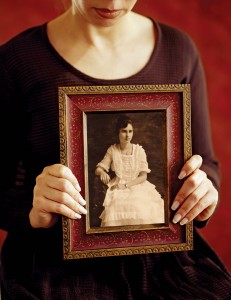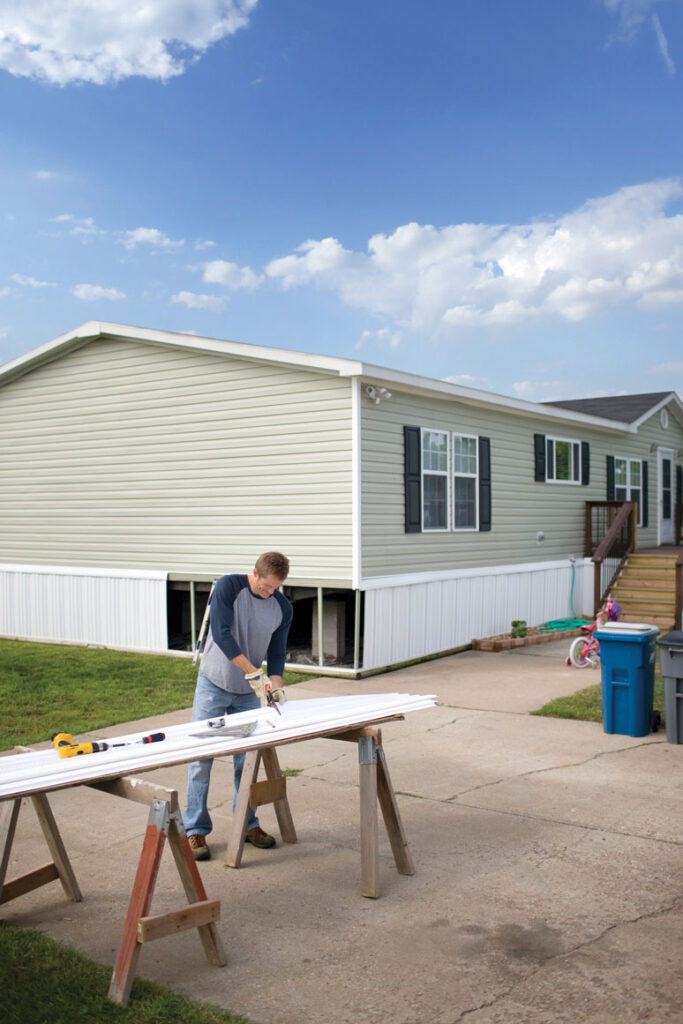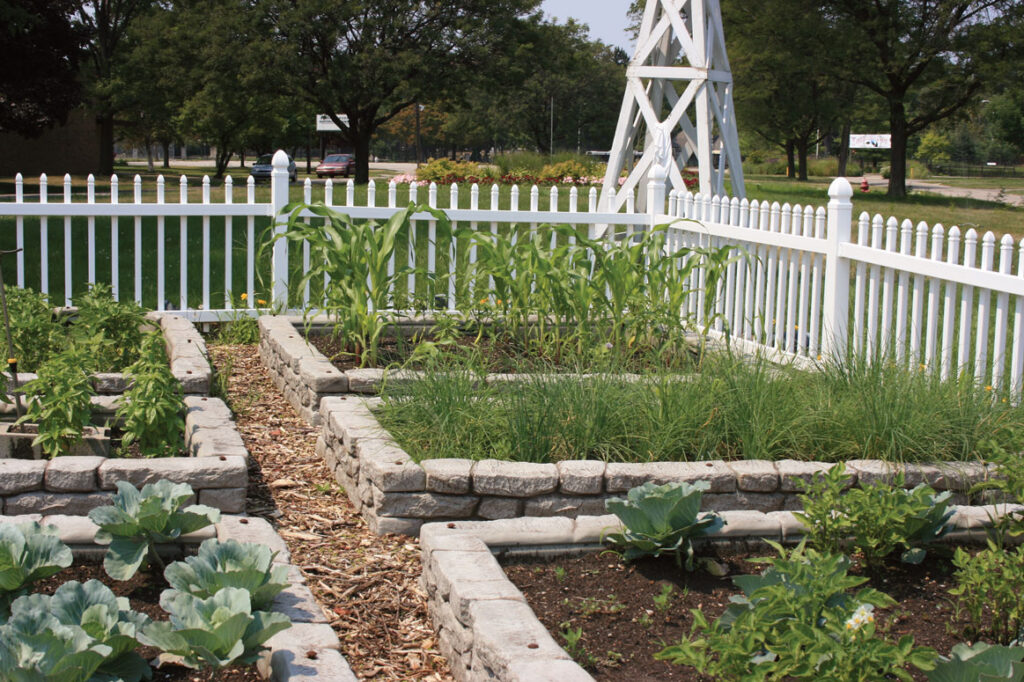 Unless you have a lot of time, you might not want to ask Dolores Ford-Mobley about her family. Because if you do, the Divernon resident will not only tell you about her children, but also her siblings, her parents, her cousins and as many as a dozen generations of ancestors. Like many Illinoisans, Ford-Mobley is a part-time genealogist and community historian, researching not only her legacy to learn the who of her family, but also the where and the how.
Unless you have a lot of time, you might not want to ask Dolores Ford-Mobley about her family. Because if you do, the Divernon resident will not only tell you about her children, but also her siblings, her parents, her cousins and as many as a dozen generations of ancestors. Like many Illinoisans, Ford-Mobley is a part-time genealogist and community historian, researching not only her legacy to learn the who of her family, but also the where and the how.
It was a passion nurtured in her as a child growing up near the small Marion County community of Alma. She recalls the stories her maternal grandfather told about his uncles. “He remembered everything and had a story for everything,” she says. “I was the only one who would sit and listen to him, but I found it all very interesting.”
A visit from a great aunt who produced the post-Civil War love-letters belonging to a great-great grandfather further stoked her kindling passion for the past. When a career move placed her office just blocks from the state archives in Springfield, Ford-Mobley began exploring her family’s past. Since her storyteller grandpa had already compiled some records, she had a head start learning more.
“I already had a wealth of information; he had done two histories himself in the 1950s,” she adds. “For example, I already knew that I was part of the 12th generation of descendants from the Mayflower before I even got started.”
Once she started genealogical pursuits some 30 years ago, she never stopped. Over the years she’s written and requested records from dozens of county courthouses, poured through microfilm copies of old newspapers and records and visited countless cemeteries in search of missing pieces to the family puzzle.
“As a genealogist, you start with yourself and work backwards. You’re always trying to find what is included in the dash between someone’s birth year and death year,” she says. “The who is the boring part; learning who they really were, where they lived, what they did and what was going on makes up the real finds.”
Those discoveries are part of what makes genealogy fascinating, says Janice Fritsch of Sandwich. Fritsch serves as president of the Illinois State Genealogical Society. “Each genealogist will have a different answer as to why they do the research,” she says. “Sometimes it might be to find who your immigrant ancestors were, other times it’s just about finding a parent or grandparent or wanting to know your family’s stories; sometimes it’s solving mysteries. That’s what genealogists like to do; they like to research and learn about families.”
The first steps to tracing your own family histories are rather simple. Fritsch says to complete family profile sheets for you and your siblings as well as for your parents and, if possible, grandparents, noting birthdays, marriages and other pertinent information. Then, Ford-Mobley says it’s time to start asking questions.
“Interview your older relatives and ask them to tell you about where they went to school, what they did for vacations and about their parents,” she says. “There is a vast amount of information in all of us. I’d suggest taking other relatives with you, because they’ll pull more information out. These people just know so much and it’s all things that you’ll never find in an archive. When a person passes away, it’s like a library has burnt down. You don’t want to lose that information.”
She says that many of the other resources available today for genealogy research far outweigh those when she began her study. Today, many records including archives, some birth records and census data are all available online. Local organizations of genealogists are valuable as well.
“Our society has more than 71,000 obituaries on file, and with each one you usually can find three or four generations of your family, so that’s a great starting place,” Mary Duhr, president of the Iroquois County Genealogical Society says. “Of course, obituaries also give you birthplaces, marriages and places that ancestors lived.”
She adds that many Illinois counties have genealogical societies, with membership eager to help others discover their own family roots.
“Sometimes genealogy is like a puzzle,” she explains. “It’s a challenge, but when you find something, it’s very exciting, even if you’re finding it for somebody else.”
“What I find amazing,” Fritsch adds, “are the things I learn about my family that haven’t been passed down; things that are lost after just a few generations, the stories I didn’t know.”
Many genealogists say commercial websites such as Ancestry.com and others (see the accompanying list of websites) are all good starting points for researching family origins.
“I use these sites almost on a daily basis,” Duhr says. “They’re putting more and more information out there. While some of them are premium sites, meaning that you have to pay to belong or get access, they often have the actual documents where you can download a copy. They are a good tool.”
Ford-Mobley says in using websites to do genealogical research, be careful to consider primary source information like actual documents and records differently from members’ family trees. “The records are very accurate, the other information may not be,” she cautions. “Often people have cut-and-pasted from other family trees because a couple of names match and they make assumptions. It’s easy to do, but it may not always be right.”
“I look at those trees and then try to prove it or disprove it for myself,” Fritsch says. “I don’t think people are trying to be dishonest, but I think they just haven’t searched deeply enough. When families use the same first names generation after generation, it can be very confusing.”
Ford-Mobley adds that while much research can be done from the comfort of home, trips to courthouses and cemeteries are still necessary.
“Probate records, land records and such are not online yet, so you still have to go to courthouses,” she says, adding that the trips are beneficial for more than just information. “Sometimes going to the town from which your ancestors came can give you a better feeling for them.”
Fritsch says genealogy research, whether online or through expeditions, can be a very enjoyable and sometimes eye-opening pastime.
“I think as a hobby you can make it go wherever you want: one family line or multiple lines,” she says. “It’s a great way to connect and for older and younger generations to work together. I’ve started showing my grandchildren about their ancestors and they’re very interested in this.”
She adds that you may not always like what you discover. “I would warn genealogists that what you’ve been told and what you believe about your family may not necessarily be true; you have to open your eyes to the possibility of whatever you discover.”
Ford-Mobley says most genealogists will find some real stories in their research. She says her ancestors include an accused murderer (who was acquitted on self-defense grounds) as well as people who helped with the Underground Railroad.
“There’s a little bit of everything in our family,” she says. “It’s farmers and teachers and preachers and people who helped make this country and state what it is. It’s way better than fiction.”
For Illinois genealogy, Ford-Mobley recommends these websites:
State of Illinois Archives:
www.cyberdriveillinois.com/departments/archives/databases.html
Abraham Lincoln Presidential Library:
www.illinoishistory.gov/lib/default.htm
www.rootsweb.ancestry.com
www.usgenweb.org
www.findagrave.com
www.cyndislist.com
www.ancestry.com
Familytree.com
Familysearch.org
Fold3.com (for military records)
Finding Records
Many websites exist to help you research your genealogy. Those advertised regularly include pay for information sites such as Ancestory.com and others connected to the highly trafficked web address. However, a free site is hosted which utilizes community resources – with residents and relatives being the primary contributors. You can find it online at www.findagrave.com. Explore it and decide if it’s for you.
Find your relatives
The online search:
If someone has entered information from an obituary or taken pictures of headstones or monuments, you will find them posted.
1. Go to web site
2. Fill in the Grave Search Form (providing as much information as you know)
3. Click search button
4. Results for your search will appear in the shaded area near the top. Click on the person’s name and any information known will appear. (Note: Clicking on other tags, such as the Geneology Bank or Vital Records, will require you to sign up for a trial of a paid subscription. If you do this by accident, just close out the window and return to the main site.
Help someone else find relatives
To update a site or to participate in helping build the database from cemeteries or obituaries in your area simply follow the free membership sign up. All you have to have is an active e-mail address and choose a password you can remember. Once a member, here are some simple steps you can take to help.
From the Actions menu on the left, choose to Add Burial Records or Help with Find a Grave. Become a photo volunteer. Register to take photos within a given zip code. Log in and go to Contributor Profile. Find your name and click Edit My Profile. Here you can enter a zip code and choose whether you want to be emailed new requests. For additional instructions, just maneuver around on the page. Answers to most of your questions are on the site.







